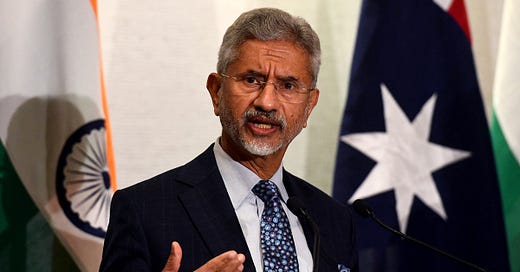India Is Beginning to Lose Patience and Is Urging Vladimir Putin to End the War in Ukraine.
The worst thing for New Delhi would be a Russia so weakened and isolated that it would become subservient to China, India's rival
Is it a call to order? Or is it an abandonment? On September 22, 2022, before the UN Security Council, Indian Foreign Minister Subrahmanyam Jaishankar launched into a tirade of unprecedented firmness towards Russia: “The trajectory that the Ukrainian conflict is taking is a matter of deep concern to the international community. The nuclear issue is a pa…
Keep reading with a 7-day free trial
Subscribe to Sylvain Saurel’s Newsletter to keep reading this post and get 7 days of free access to the full post archives.




